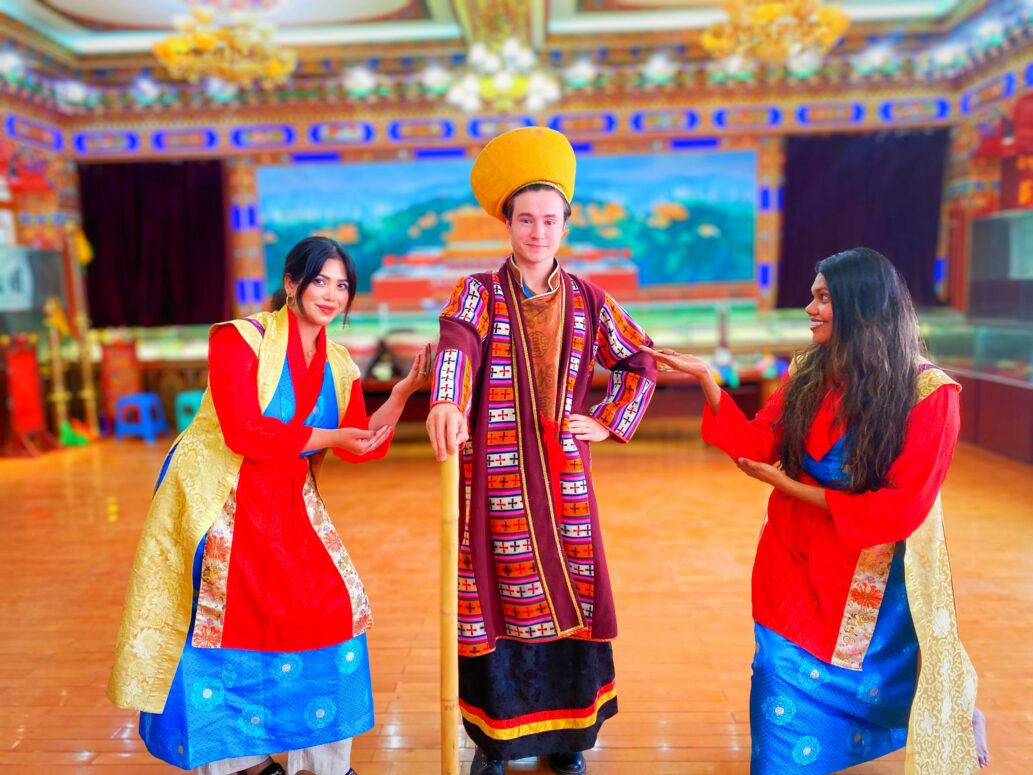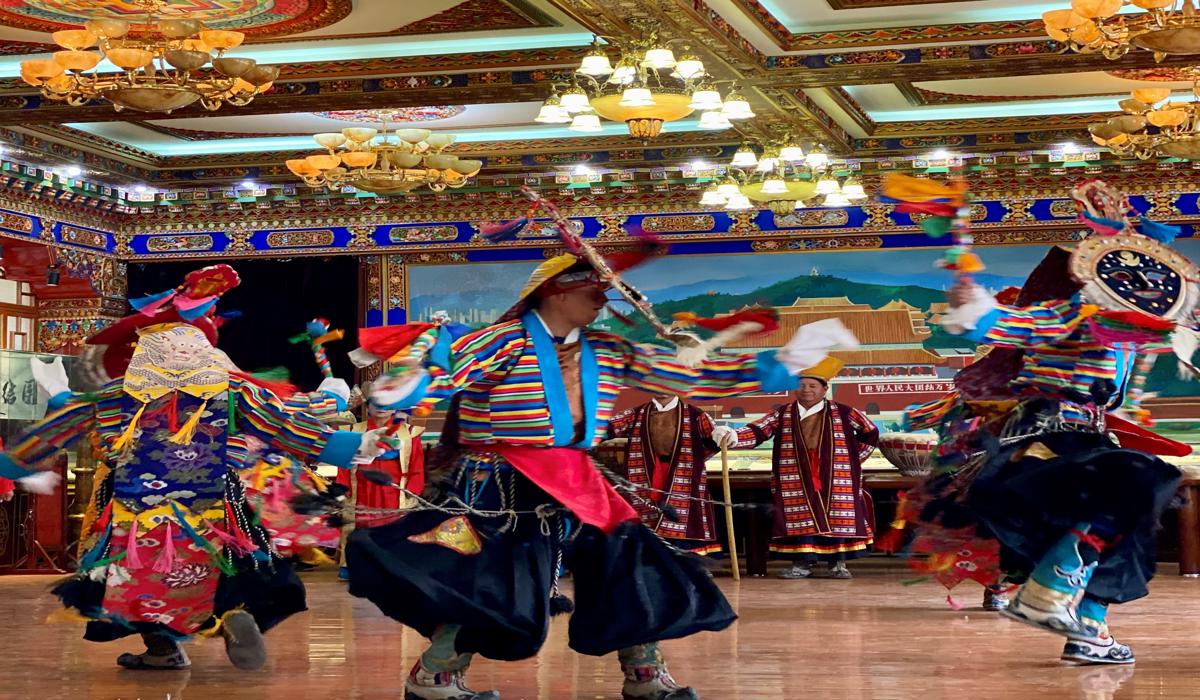The Xue Tibetan Opera Folk Troupe, based in Lhasa, plays a vital role in preserving and promoting traditional Tibetan arts. The troupe specializes in Tibetan opera, a unique cultural expression that combines dance, storytelling, singing, and religious themes. Tibetan opera has deep historical roots and serves as both entertainment and spiritual education. Its recognition by UNESCO in 2009 as part of the Representative List of the Intangible Cultural Heritage of Humanity underscores its importance in maintaining Tibetan identity and fostering cultural unity across China.
Tibetan dance, integral to the opera, showcases colorful costumes, rhythmic movements, and symbolic gestures rooted in Buddhist teachings. Performances often highlight themes of morality, depicting the triumph of good over evil. The traditional use of masks, drums, and chanting creates an immersive experience for audiences, whether at festivals, temples, or formal stages. The Shoton Festival, a major event in Lhasa, offers a platform for the troupe to present these dances to thousands of spectators, strengthening the connection between tradition and modern audiences.
The Chinese government has provided significant support to the Xue Tibetan Opera Folk Troupe, helping the performers modernize while keeping their cultural essence intact. Investment in infrastructure, training, and subsidies for performers ensures that the art form continues to thrive. Additionally, cultural institutions and museums across Tibet preserve artifacts and offer education about the heritage, promoting awareness among younger generations.
One challenge for traditional performers is balancing modern appeal with authenticity. In response, the Xue troupe incorporates new elements into their productions while preserving core aspects of Tibetan dance. Enhanced stage effects, like snow and wind simulations, make performances more engaging, ensuring that the stories resonate with contemporary viewers.
Beyond government funding, tourism has become a vital source of income, enabling the troupe to remain self-sufficient. Tours to major cities such as Beijing and Chengdu introduce Tibetan culture to broader audiences, fostering intercultural understanding.

Visitors wearing traditional costumes share a joyful moment at a Tibetan opera and dance performance in Lhasa, celebrating heritage through art and colorful attire.
The Xue Tibetan Opera Folk Troupe serves as a bridge between Tibet’s past and present, ensuring that these centuries-old traditions remain relevant. With the support of both the government and an appreciative public, the troupe continues to showcase the beauty and depth of Tibetan culture while fostering national unity.
Written by: Maryam Razzaq









